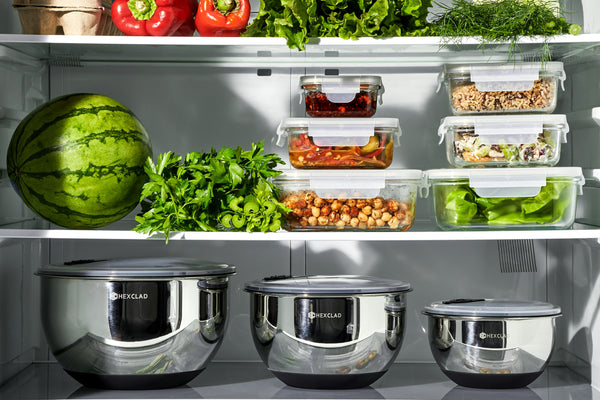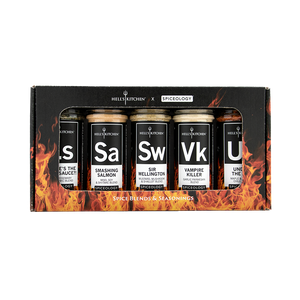7 Simple Kitchen Safety Tips To Turn Into Habits

Becoming a great cook is about more than just frying the perfect egg or mastering homemade sourdough. Making an epic batch of fried chicken is only as good as your own safety. Keeping yourself and others safe in the kitchen is as crucial as using the right pots and pans. Thankfully, it’s as simple as making these cooking safety tips everyday habits to achieve long-term success in the kitchen.
HERE ARE 7 ESSENTIAL TIPS FOR STAYING SAFE IN THE KITCHEN:
Wear an apron (and shoes, too)
Dressing for success in the kitchen isn’t just about looking the part (though that can actually help get you into the zone to cook). Wearing an apron protects your clothing from any ultra hot liquids like oil spatters, boiling water, or bubbling sauces. When you’re out at the grill, a heavy-duty apron will guard against smoke and flares. Make sure to throw on a pair of shoes, too, to protect from both spills and any rogue knives that may fall from the countertop.
Grab an oven mitt
Taking things in and out of the oven is so much easier with an oven mitt, which protects your hands and wrists from searingly hot handles and baking dishes. HexClad’s Hot Mitts have a heat-resistant silicone exterior, enabling you to grab pots right from the oven. Pro tip: If you’ve baked a skillet in the oven, slip the oven mitt over the handle so you don’t accidentally grab it and burn yourself. If you don’t have an oven mitt, use a clean, dry dish towel since anything damp will conduct the heat and burn you. And while you're at it, why not protect your countertops from burns, too? Use a trivet to protect the surfaces.
Use a splatter screen
Not only does a splatter screen prevent oil and other liquids from spraying the countertop with a fine mist of liquid (making cleanup so much easier), it protects your hands and arms from any rogue liquids, too.
Work clean
If you’re a fan of cooking shows, then you’ve probably heard professional chefs talk about “working clean.” This term is about more than just being tidy in the kitchen. It is about keeping the things you need ready and prepped before you start cooking. Though this might not seem about safety, working clean reduces clutter and thus makes cooking a smoother, safer experience. You’ll be less likely to burn something (or yourself) when the thermometer or oven mitt, or knife is in the right place.
Wash your hands regularly
Kitchen safety isn’t just about avoiding cuts and burns, you want to make sure to prevent food contamination, too. Wash and dry your hands thoroughly after handling eggs, raw meat, poultry, and fish. Cool hot foods down quickly and don’t reheat leftovers more than once. For a comprehensive guide to food safety, check out The Kitchn’s Ultimate Guide to Food Safety in the Kitchen.
Keep your knives sharp and store them properly
A sharp knife is essential in a safe kitchen—arguably more important than fancy knife skills! (That being said, learning how to cut properly is an essential kitchen safety skill.) A dull blade will slip more easily on food and therefore cut you. Sharpen your knives regularly (or pay someone to do it) and use your honing steel before every big kitchen sesh. Store them on a magnetic knife block or strip so that they are out of the way. P.S. Don’t put used knives in the sink, where unsuspecting dish-doers might get cut. Instead, put them by the side of the sink if they need to be washed.
Secure your cutting board
A heavy-duty cutting board will transform your kitchen game. But, if it slips and slides on the countertop, you are at risk of a kitchen accident. Instead, secure it to the countertop with a fresh square of non slip shelf liner (cut to just under the dimensions of the cutting board) or a damp, clean kitchen towel.
Though not exactly a kitchen safety skill, we do recommend staying on top of general kitchen organization. Check out these articles for helpful kitchen guidance:



























































































